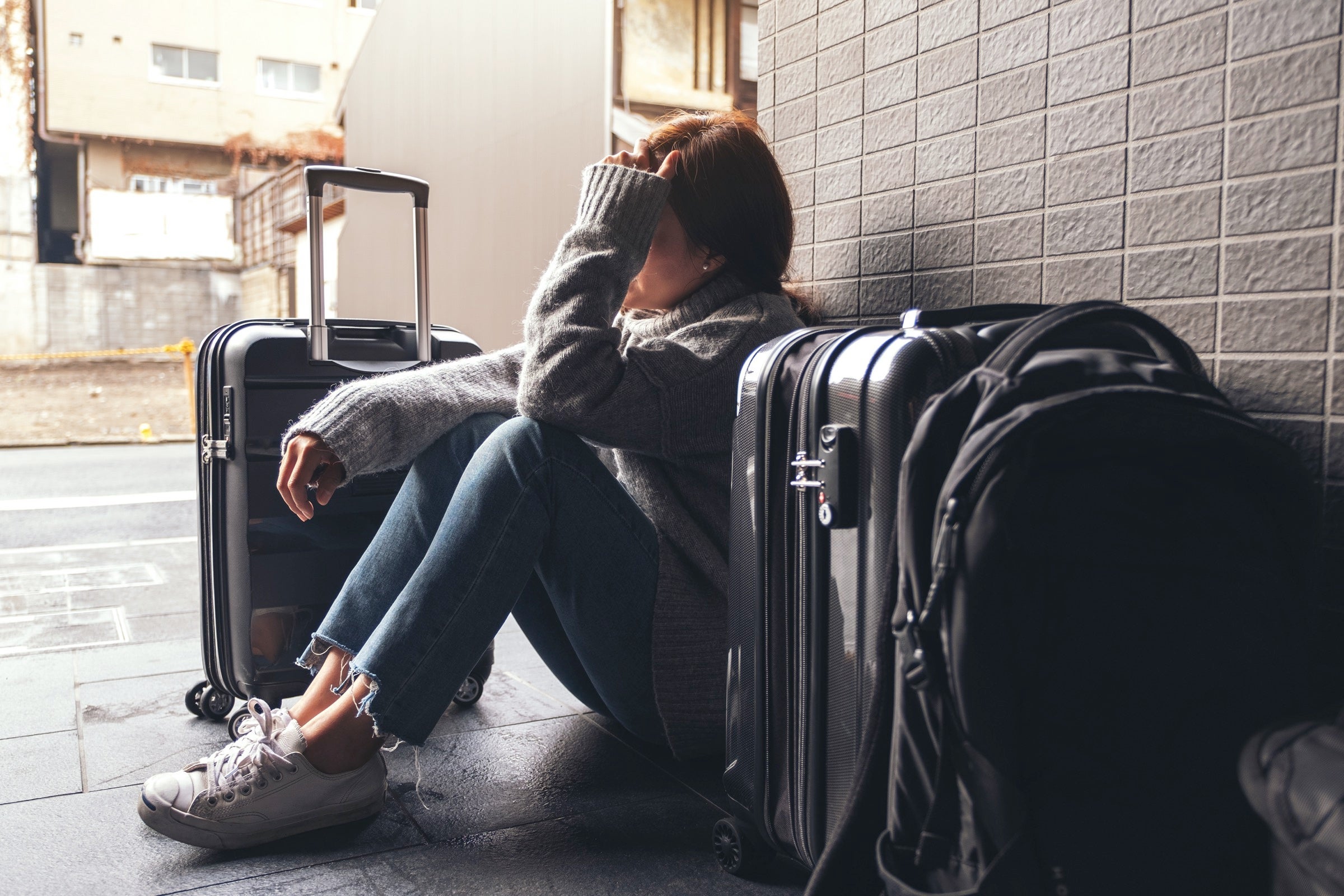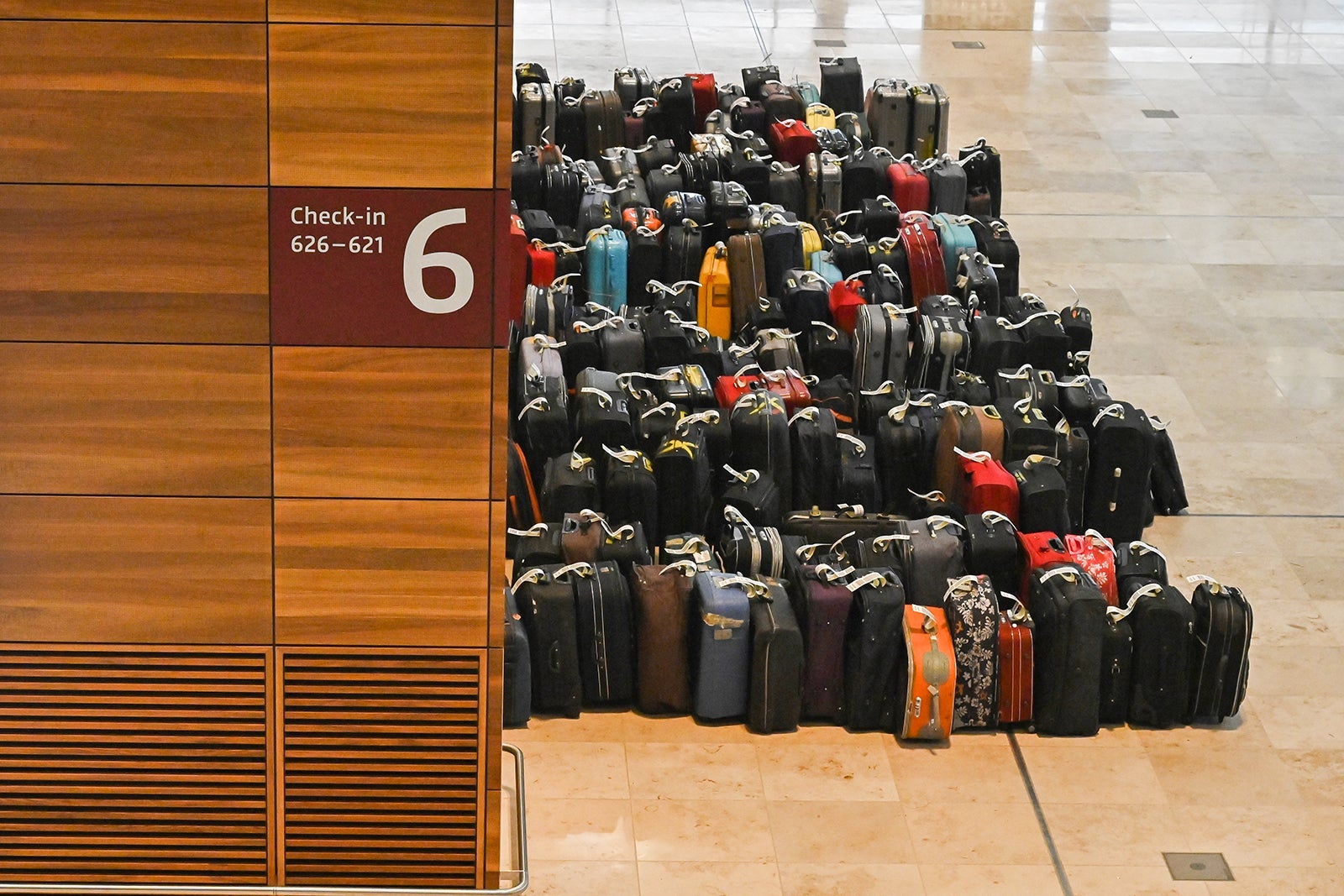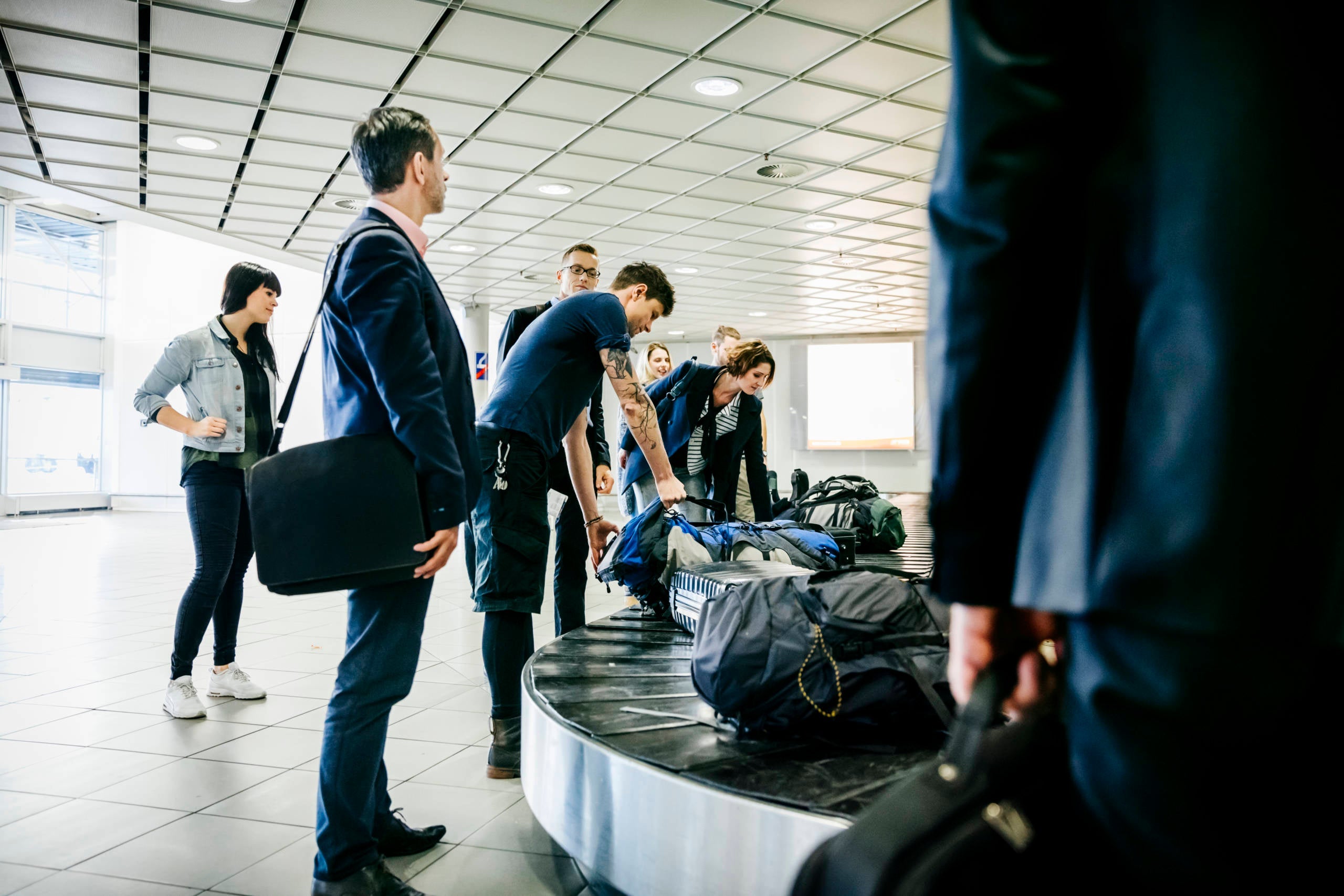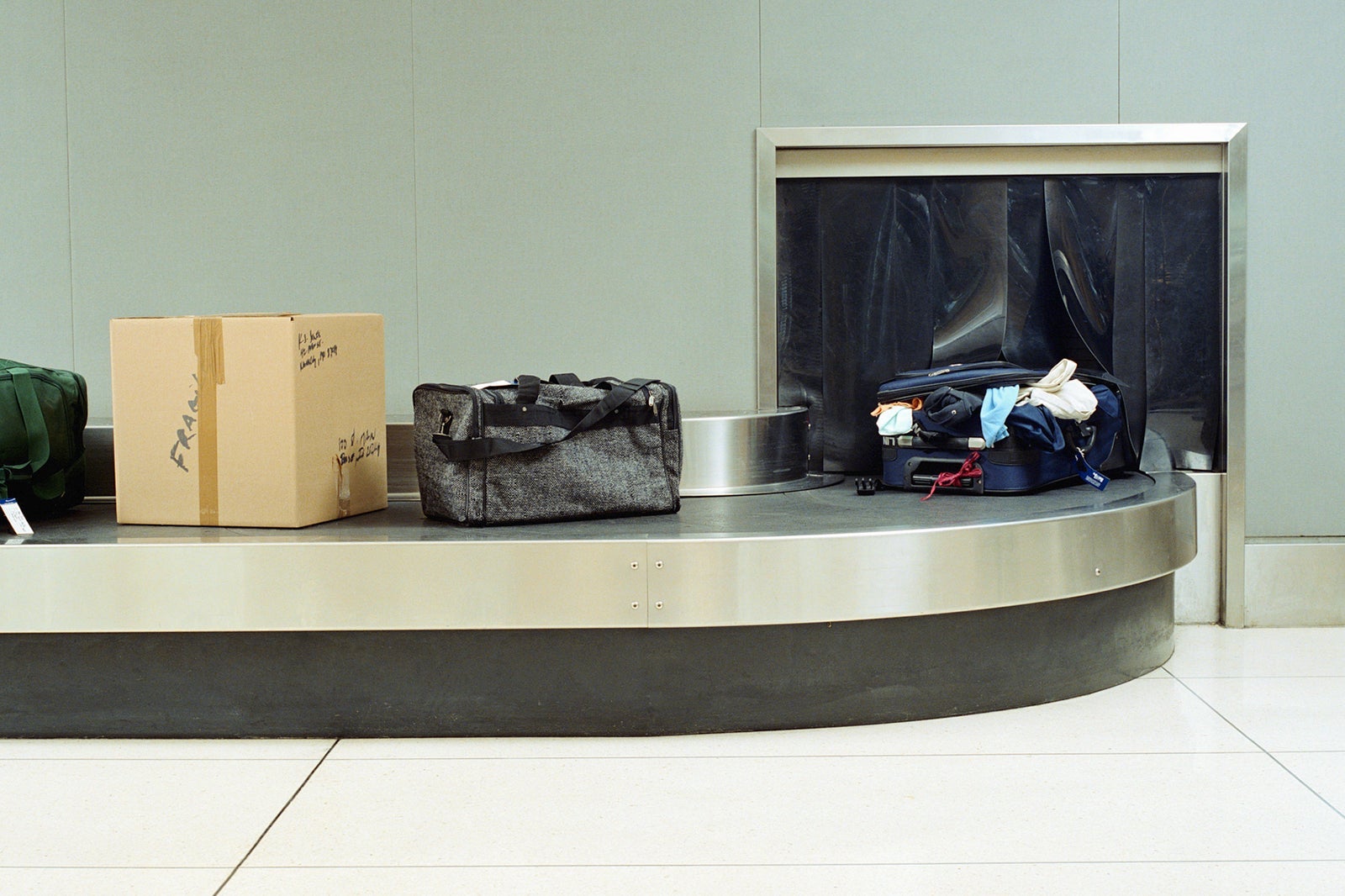Lost vs. delayed baggage: How are they different and how do you protect yourself?
"Oh no! The airline lost my suitcase!" This is the most common thing we hear from readers and friends alike when a suitcase doesn't arrive as expected. However, your suitcase likely isn't lost — it's probably just delayed. What's the difference? I'm glad you asked.
Navigating this stressful experience with your luggage can be complex. That's furthered by the fact that airlines differentiate lost baggage from delayed baggage in varying ways. Today, let's look at how these situations are different, your rights concerning both and how you can best protect yourself in case your bags are lost or delayed in the future.
[table-of-contents /]
What's the difference between delayed and lost luggage?
Delayed baggage means your checked luggage has not arrived at your destination on time. It is generally considered to be lost after 21 days for most international airlines and 5-14 days for U.S. carriers. Which international convention a country belongs to will largely determine your rights to compensation.
For international flights, the Montreal Convention of 1999 is in effect for countries that have ratified it (we'll go into more detail on that later on). This convention allows airlines to classify luggage as delayed — not lost — for up to 21 days.
However, within the U.S., airlines typically don't wait that long to consider your suitcase to be lost. Here's the prescribed time frame for some popular airlines:
- Alaska Airlines, Southwest Airlines and United Airlines: After 5 days.
- Delta Air Lines: After 14 days.
- American Airlines: Does not list a specific cut-off point for delayed baggage being classified as lost baggage. Instead, the airline says it will ask you for more information after five days of searching without finding your suitcase(s). The final determination of when your items will be considered lost will be made based on several factors, which includes the airline's contract of carriage.
Your rights with delayed baggage
If your suitcase doesn't arrive with you at your destination, you're currently experiencing delayed baggage. There are steps you should take immediately so you can get reimbursed for expenses you incur.

Assuming your suitcase didn't arrive at your destination on time, you'll likely need a few immediate things while waiting, like toothpaste, a toothbrush and a change of underwear. How airlines approach what you can and can't be reimbursed for — and how much they'll spend reimbursing you — can vary. Here's a sample from U.S. airlines:

- Alaska Airlines: Allows reimbursement for "travel essentials."
- American Airlines: Allows reimbursement "for items you need immediately while away from home without your bags."
- Delta Air Lines: Allows "reasonable expense reimbursements" of generally $50 per day for the first five days.
- United Airlines: Allows "reimbursement for expenses ... based upon acceptable proof of claim."
- Southwest Airlines: Allows for "reimbursement of reasonable expenses you may have incurred."
For flights involving countries in the EU, you should be covered by passenger rights under EU 261. Under these rules, you are eligible for reimbursement only for necessities while waiting for delayed baggage.
Related: Some US domestic flights now eligible for cash if delayed or canceled
It's important to note that your rights to reimbursement while waiting for delayed baggage will only take effect after submitting a claim with the operating airline. For this reason (and others), it's essential to submit your claim as soon as possible. Purchases you make prior to submitting your claim may not be reimbursed.
Your rights with lost baggage
Assuming you've passed the point of return and your luggage is officially deemed lost, what now? The good news is that the airline should reimburse you for (some of) the value of what you've lost. The bad news is that there are limits to this coverage and that proving the value of what you lost isn't a simple task.

Flights within the U.S.
Within the U.S., the Department of Transportation has rules covering lost luggage. Airlines must establish a protocol for lost luggage claims and cannot set their reimbursement limits below $3,500 for a lost bag. Additionally, airlines are not required to reimburse you for certain items, such as expensive jewelry, fur coats, artwork, computers, money and fragile items.
Delta Air Lines has exceeded this minimum, establishing a maximum reimbursement of $3,800 for domestic flights. (Prior to Jan. 31, 2017, the airline allowed for purchasing excess coverage, but that has ended.)
Alaska Airlines, however, still offers extra liability, which you can purchase at a rate of $1 per $100 of value added to the $3,500 in standard coverage for lost baggage. The maximum you can purchase is an additional $5,000 in liability.
Related: 7 steps to take when an airline loses your luggage
United Airlines has taken a different approach. If the airline can't find your bag after five days, you can submit a simplified claim with minimal paperwork for a flat $1,500 in reimbursement. If you need to claim more than that, you can file your claim online for a maximum of $3,500, which requires supporting documentation.
The Department of Transportation's rules provides for reimbursement of checked baggage fees you paid on any luggage that is lost or delayed. Delta has the simplest process of the major carriers, providing a claim form you can submit online.
Mobility equipment is specifically highlighted as an exception in the Department of Transportation's liability limits. If an airline loses or damages mobility equipment or devices that assist persons with disabilities, the airline is liable for the full cost of replacing or repairing the item(s).
International flights
The Warsaw Convention was originally signed in 1927 and replaced by the Montreal Convention for those countries which have signed the latter.
The Montreal Convention covers the majority of countries, including the United States, the United Kingdom and all countries in the European Union. Flights governed by the Montreal Convention have a higher reimbursement for lost suitcases. The limit is 1,288 Special Drawing Rights, which will be converted to the local currency by the airline reimbursing you. The value in U.S. dollars at the time of writing is approximately $1,677.
Within the EU, recent regulations are intended to increase coverage for mobility and assistance devices that are lost or damaged by airlines.
The Warsaw Convention covers countries such as Dominica, Iran, Liberia, Papua New Guinea and Trinidad and Tobago. Flights governed by the Warsaw Convention have reimbursement limits of approximately $9 per pound of your checked bag, with a limit of around $640 per suitcase. The maximum liability for a carry-on bag is $400.
Interestingly, there are countries that aren't party to either convention, meaning there are no international passenger rights at play. These include Bhutan, Nicaragua and multiple island nations in the Caribbean and the South Pacific.
Important things you should know about the claims process
Each airline has its own claims process when seeking reimbursement for lost baggage. Check the requirements of the airline you flew with to see what specific documents and timelines they require. However, some aspects of the process will be the same across all airlines.
The first element to understand is that there are coverage limits. This is why airlines tell you to keep any valuables in your carry-on bag since these are less likely to be lost.
Next, understand that you are not guaranteed to be paid the maximum reimbursement amount. These are maximums, but the airline will only reimburse you for the value of what you've lost. That means you'll need to tell the airline everything that was in your checked suitcase. Remembering exactly what you packed may be difficult, and you'll also need to provide original purchase dates and costs. Assembling these documents may require credit card statements to show where you purchased an item, for how much and when. The airline may also ask for original purchase receipts.
Then, understand that the airlines will depreciate the value of these items to a current value. If you purchased a video camera five years ago for $1,000, the airline will likely tell you it's not worth $1,000 today.
Lastly, the maximum liability amount includes the money that the airline has already given you during the "delayed baggage" phase. Thus, if you submitted a claim for $300 in necessities during the waiting period, this $300 will be subtracted from the final reimbursement value that the airline will pay out after deciding that your suitcase is lost.
Protecting yourself against expenses from delayed and lost luggage
Your suitcase hasn't arrived at your destination. Unfortunately, it contains your dress clothes for an important business presentation first thing tomorrow morning. You're certain that the airline will reimburse you for deodorant and a hairbrush, but what about the work-appropriate clothes you now need to purchase? Are those "necessary expenses" or not?
While my wife and I were in northern Canada and our winter coats were in a delayed bag with WestJet, those items were considered necessary and covered in our reimbursement claim. However, these decisions are subjective and open to interpretation by the person evaluating your claim.

Thus, relying on your airline's reimbursement policy may not be sufficient. You could count on a separate travel insurance policy that you purchased prior to departure. Another option is the coverage provided by the credit card you used to pay for your trip.
Some credit cards provide baggage delay insurance. This coverage typically kicks in after six hours of delay, and most cards provide up to $100 per day in coverage. Interestingly, you won't find any American Express credit cards on this list. However, the American Express baggage insurance plan does cover lost luggage.
Additionally, taking some preventive measures before you give your suitcase to the airline might help you.
Bottom line
If you've considered checking a bag versus going with just a carry-on and chosen the former, you hope and rightly expect that your suitcase will arrive on schedule. If that doesn't happen, you have certain rights while waiting for your delayed baggage.
Remember to submit a delayed baggage claim as soon as you realize your baggage hasn't arrived. You'll generally be able to spend $50-100 a day for five days on essentials like toiletries and clothes while you wait for your bag to arrive.
The general rule is that it can take up to 21 days to declare your baggage as lost, but some airlines — especially in the U.S. — will make the decision in a shorter time frame, usually within 5 to 14 days. You have the right to be reimbursed for what the airline has lost but note that it is subject to limits and depends on your ability to prove exactly what you've lost, and how valuable it is.
TPG featured card
at Capital One's secure site
Terms & restrictions apply. See rates & fees.
| 5X miles | Earn 5X miles on hotels, vacation rentals and rental cars booked through Capital One Travel |
| 2X miles | Earn unlimited 2X miles on every purchase, every day |
Pros
- Stellar welcome offer of 75,000 miles after spending $4,000 on purchases in the first three months from account opening. Plus, a $250 Capital One Travel credit to use in your first cardholder year upon account opening.
- You'll earn 2 miles per dollar on every purchase, which means you won't have to worry about memorizing bonus categories
- Rewards are versatile and can be redeemed for a statement credit or transferred to Capital One’s transfer partners
Cons
- Highest bonus-earning categories only on travel booked via Capital One Travel
- LIMITED-TIME OFFER: Enjoy $250 to use on Capital One Travel in your first cardholder year, plus earn 75,000 bonus miles once you spend $4,000 on purchases within the first 3 months from account opening - that’s equal to $1,000 in travel
- Earn unlimited 2X miles on every purchase, every day
- Earn 5X miles on hotels, vacation rentals and rental cars booked through Capital One Travel
- Miles won't expire for the life of the account and there's no limit to how many you can earn
- Receive up to a $120 credit for Global Entry or TSA PreCheck®
- Use your miles to get reimbursed for any travel purchase—or redeem by booking a trip through Capital One Travel
- Enjoy a $50 experience credit and other premium benefits with every hotel and vacation rental booked from the Lifestyle Collection
- Transfer your miles to your choice of 15+ travel loyalty programs
- Top rated mobile app


